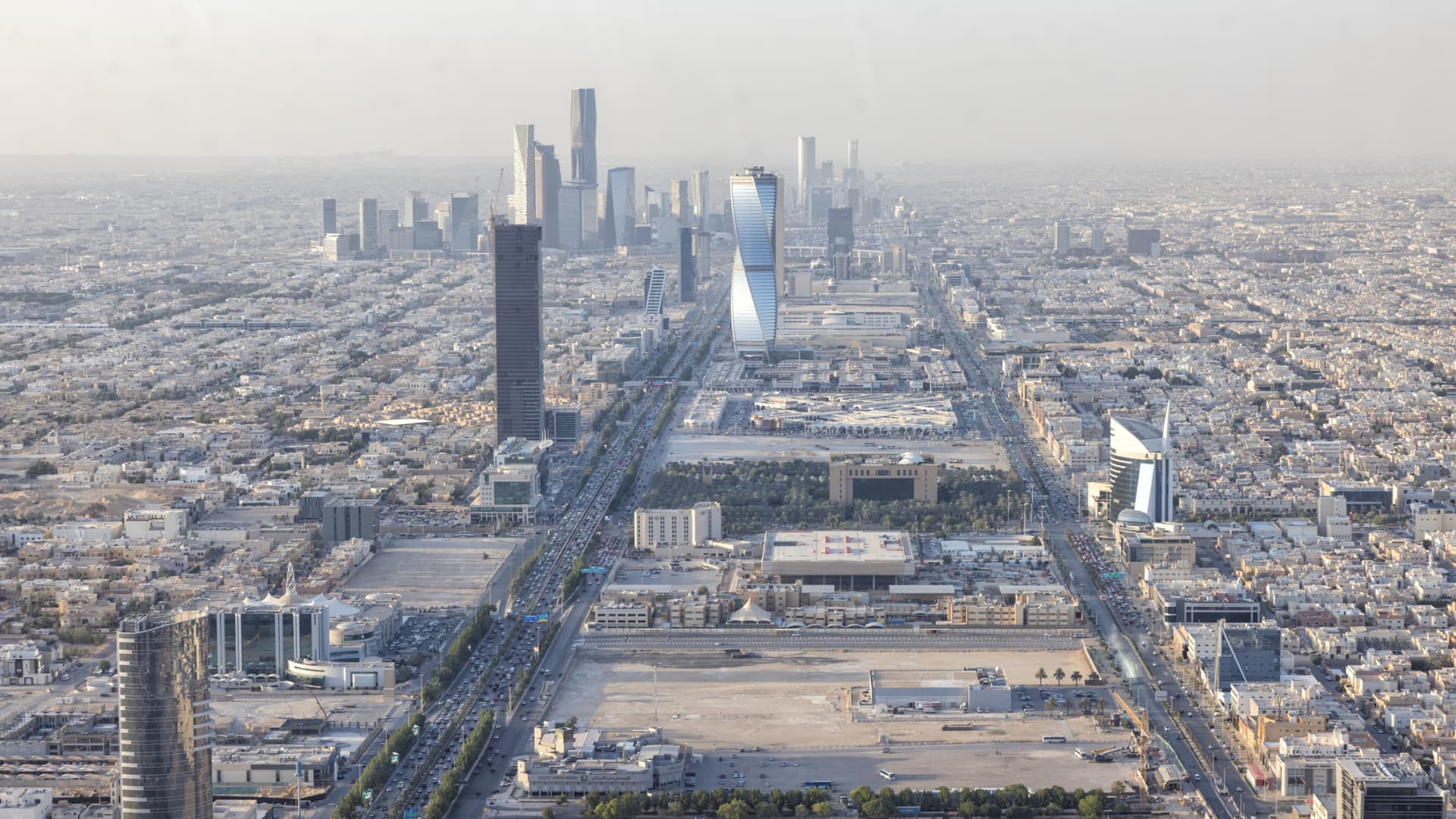Saudi Arabia’s economy slowed in the second quarter, as crude output cuts and a drop in oil prices reined in one of the fastest growing nations of the G20.
Riyadh’s GDP expanded by an annual 1.1% in the second quarter, the Saudi General Authority for Statistics said Monday, down from 3.8% in the previous quarter and 11.2% in the same period of 2022.
The non-oil sector — where Saudi Arabia is directing its socioeconomic reforms under Crown Prince Mohammed bin Salman’s Vision 2030 economic diversification program — grew by 5.5% in the second quarter.
But hydrocarbon-reliant Riyadh logged a 4.2% loss in non-oil GDP in the second quarter, bearing the brunt of lower global crude prices and voluntary oil production cuts. Oil prices spiked last year, as Moscow’s full-scale invasion of Ukraine and ensuing international sanctions decoupled many Western consumers from Russian crude supplies. The world’s top oil exporter benefitted doubly at the time, from both the boost in flat prices and from bolstered demand for Saudi Arabia’s own crude, which is qualitatively comparative to Russia’s mainstay supply.
Commodities offered less support to the Saudi economy in the first half of this year, with oil prices lingering below $80 per barrel amid macroeconomic concerns, a recessionary dip in demand and China’s protracted exit from spartan Covid-19 restrictions. The expiring Brent futures contract with September delivery were trading at $84.89 per barrel at 9:10 a.m. London time, down by 10 cents per barrel from the Friday settlement.
Saudi Arabia is also shouldering the lion’s share of additional voluntary crude production cuts agreed by some members of the Organization of the Petroleum Exporting Countries (OPEC) and its allies, known as OPEC+. Some OPEC+ nations are carrying out 1.66 million barrels per day of declines until the end of 2024, with Saudi Arabia lowering output by a further 1 million barrels per day in July and August. Fellow heavyweight and petropolitics ally Russia is likewise curtailing its crude exports by 500,000 barrels per day next month.
The International Monetary Fund had dubbed Riyadh the fastest growing G20 economy of 2022, with an overall expansion of 8.7% last year. The fund foreshadowed the Saudi slowdown last week, when it cut GDP growth projections for Riyadh from 8.7% in 2022 to 1.9% in 2023 in its July 25 issue of its World Economic Outlook.
“The downgrade for Saudi Arabia for 2023 reflects production cuts announced in April and June in line with an agreement through OPEC+,” it said, stressing that “private investment, including from ‘giga-project’ implementation, continues to support strong non-oil GDP growth.”
The Saudi slowdown is set to ripple into overall performance in the Middle East and Central Asian region, where the IMF now expects growth of just 2.5% this year, from 5.4% in 2022.
